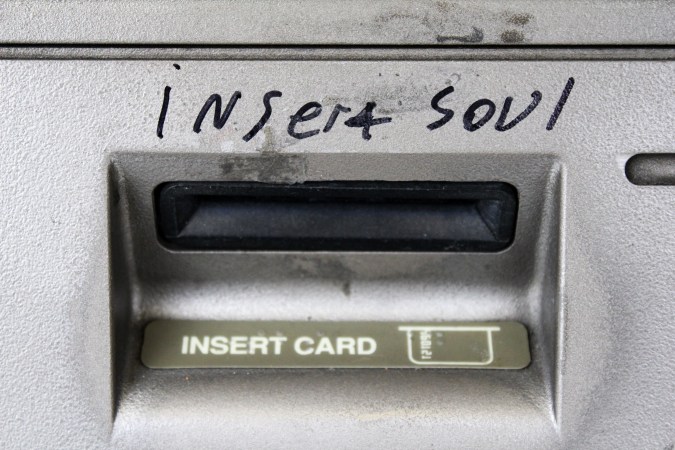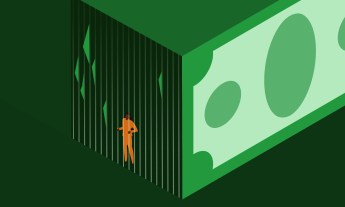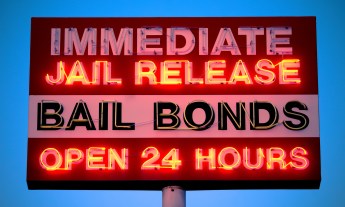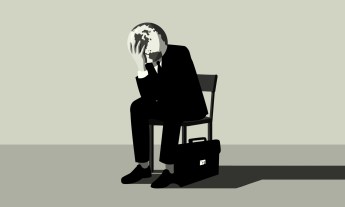
One of the things that baffles mere mortals about the 2008 financial crisis is that no one seems to have been held accountable for what went on. Sure, there’ve been a few public mea culpas, and sure, multimillion-dollar fines have been paid. But actual admissions of guilt? Not so much. A grand total of one Wall Streeter has gone to jail for his actions, after pleading guilty of lying about the value of mortgage-backed securites. As Jon Stewart noted on The Daily Show, this was by no means the beginning of a financial day of reckoning. “He went to jail for stupidity! Doesn’t he know pleading guilty is not how you address those very common charges?” Stewart, er, joked.
That in turn, of course, begs the question of whether anything has actually changed in the past six years. Economics professor William Black seems to think not. As he says in this sobering TED Talk, the alive-and-kicking “Too Big To Fail” institutions are a “ticking time bomb. They will cause a global crisis as soon as the next one fails. Not if, when.” Well, that seems fairly unambiguous. Yet don’t you get the feeling that we’re blindly bowling our way towards that new epic fail, as those of us on the outside of the financial industry still blindly trust the banking bigwigs to do what’s right? (See also Michael Lewis’ Flash Boys to get a disheartening sense of how most of these so-called experts seem to have no idea how the system actually works. And yet they’re still in charge of our money!)
The joke, it seems, is on us. Or, as senator Elizabeth Warren writes in her just-published autobiography, A Fighting Chance: “Today the game is rigged — rigged to work for those who have money and power.” Later: “The government gives the banks the money but never puts major resources and manpower into finding out whether the sudden gaping hole in the banks’ balance sheets was caused, at least in part, by illegal activity.”
Black points to a model from a different time, the Savings & Loan crisis of the 1980s. Then, he says, nearly 600 senior officials were prosecuted, and there was a 90% conviction rate. “It was one of the greatest successes against elite white-collar criminals ever.” But the current enmeshment of banking and politics means that such action is now unimaginable. Black points out that financial institutions are now the largest donors to both political parties. That means legislators aren’t going to fix this for us. What — and bite the hand that feeds them?
So really, it’s all pretty simple if totally depressing. The system is broken, and no one is going to fix it for us. We may be busy trying to run our own lives, but ugh, we’ve got to get involved and ensure that our elected officials do the right thing. It sheds new light on the reform movement of the likes of Larry Lessig, who’s now raising money for a mission to end the dominance of political action committees in elections, so that politicians can freely vote on reform. Lessig writes, “We can create a system in which it isn’t the influence of a few that matters. Instead, as any democracy should, it would be the influence of a majority that matters.” Now, wouldn’t that be nice.
[ted id=1996]
Photo: Quinn Dombowski.












